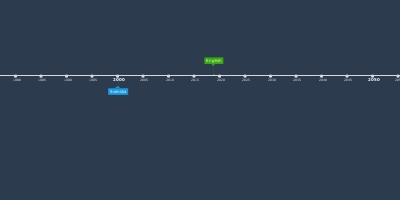The Romantic Age (jan 1, 1790 – jan 1, 1830)
Description:
The Romantic era was an artistic, literary, musical and intellectual movement that originated in Europe toward the end of the 18th century. Many writers in the Romantic period emphasized feeling and imagination and looked toward nature for insight into the divine. At the turn of the century, fired by ideas of personal and political liberty and of the energy and sublimity of the natural world, artists and intellectuals sought to break the bonds of 18th-century convention. In England, initial support for the Revolution was primarily utopian and idealist, and when the French failed to live up to expectations, most English intellectuals renounced the Revolution.Romanticism was characterized by its emphasis on emotion and individualism as well as glorification of all the past and nature, preferring the medieval rather than the classical. It was embodied most strongly in the visual arts, music, and literature, but had a major impact on historiography, education, the social sciences, and the natural sciences. It had a significant and complex effect on politics, with romantic thinkers influencing liberalism, radicalism, conservatism and nationalism. The Romantic period also featured significant innovations in the novel form like the Gothic fiction (Mary Shelley, Edgar Allan Poe). The generation of romantic poets included John Keats, Percy Bysshe Shelley, and Lord Byron.
Added to timeline:
Date:
jan 1, 1790
jan 1, 1830
~ 40 years
